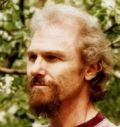
Publisher:
Bonnie King
CONTACT:
Newsroom@Salem-news.com
Advertising:
Adsales@Salem-news.com

~Truth~
~Justice~
~Peace~
TJP
Apr-23-2014 13:44

 TweetFollow @OregonNews
TweetFollow @OregonNews
Transcending Death
Dr. William T. Hathaway Salem-News.comThe divine energy of transcendental consciousness heals our nervous system of stresses, or karma, that we've accumulated in the past.
 theskyrimblog.ning.com |
(OLDENBURG, Germany) - Death. The very word casts a pall of doom. Why is it so upsetting to us?
Perhaps because it conflicts with two different ways in which we know the world. We know intuitively we are immortal beings, an essence deep within us is eternal. Our sense perceptions, though, tell us we die and cease to exist. We see that the person we knew is gone. The body lying there is not them at all. Where are they? Where are we going to be when we die? How can an immortal being cease to exist? This contradiction between two kinds of knowing creates an epistemological crisis in us.
What is really true?
This contradiction is bridged when we reach the state of samadhi while meditating (my experience has been through Transcendental Meditation).
In samadhi our brain waves, breath rate, and blood chemistry change, and we enter a fourth state of consciousness distinct from waking, dreaming, and deep sleep. Our thoughts fall away, our mind becomes silent, and we transcend, go beyond, our everyday relative self. We leave all that behind, analogous to dying and leaving the body, and we shift into the transcendental Self, the field of consciousness that manifests and animates the universe. As our individual ego fades, we merge with this unified field where everything becomes one. But paradoxically we're still us; we don't disappear into it. Instead we experience this field as the interface between God and the universe, God and us, filled with divine love, energy, and intelligence. But we experience it usually for only a few moments; it's too overwhelming for us to stay longer. We think How wonderful! and are pulled out into the relative again, back into thoughts and boundaries. But our minds have been infused with some of the qualities of that field, and we bring those into our activity, making our life more energetic and enjoyable.
The divine energy of transcendental consciousness heals our nervous system of stresses, or karma, that we've accumulated in the past. As we progress through many experiences of leaving the small self and merging with the big Self but still maintaining an individual identity, this state of samadhi becomes familiar to us and we can stay there longer.
We no longer fear death. We understand that just as we join with the transcendental field in meditation and then return from it again, we join with it in death, rest awhile, and then return in a new body filled with desires to experience relative life. But once all our desires are fulfilled and we are clear of karma (the state of enlightenment), we don't take another body. We stay there with God. Why go anywhere?
William T. Hathaway is an adjunct professor of American studies at the University of Oldenburg in Germany. He is author of the novels A World of Hurt, CD-Ring,, Summer Snow and a nonfiction book, Radical Peace: People Refusing War. He also wrote the screenplay for Socrates, an educational film starring Ed Asner that was broadcast on PBS.

Hathaway began his writing career as a newspaper reporter in San Francisco, then joined the Special Forces to research a book about war. Based on his experiences on a combat team in Vietnam, A World of Hurt won a Rinehart Foundation Award for its portrayal of the psychological roots of war.
After the war Hathaway became a peace activist. In his latest book, Radical Peace, he wrote, "Since then my books and articles have centered on this theme, as do many of my nonwriting activities. It's become my beat, as they say in the newspaper business." A selection of his writing is available at http://www.peacewriter.org. You can drop William an email at this address: william.hathaway@ewetel.net.
William T. Hathaway's first book, A World of Hurt, won a Rinehart Foundation Award. His new one, Wellsprings: A Fable of Consciousness, concerns the environmental crisis: www.cosmicegg-books.com/books/wellsprings. He was a Fulbright professor of creative writing at universities in Germany, where he currently lives. A selection of his writing is available at www.peacewriter.org.
William T. Hathaway's new book, Lila, the Revolutionary, is a fable for adults about an eight-year-old Indian girl who sparks a world revolution for social justice. Chapters are posted on www.amazon.com/dp/1897455844. A selection of his writing is available at www.peacewriter.org.
 |
Articles for April 22, 2014 | Articles for April 23, 2014 | Articles for April 24, 2014

Salem-News.com:
googlec507860f6901db00.html



Terms of Service | Privacy Policy
All comments and messages are approved by people and self promotional links or unacceptable comments are denied.
[Return to Top]
©2025 Salem-News.com. All opinions expressed in this article are those of the author and do not necessarily reflect those of Salem-News.com.